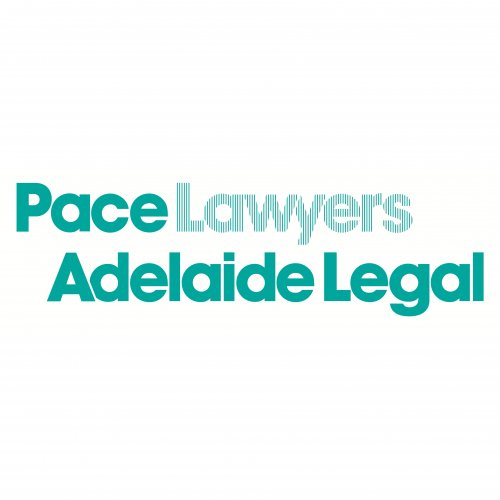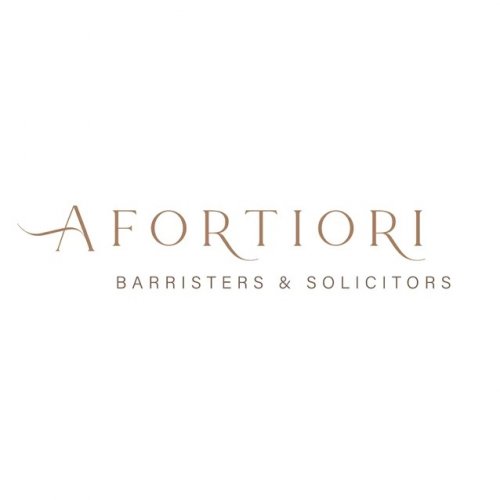Best Bankruptcy & Debt Lawyers in Adelaide
Share your needs with us, get contacted by law firms.
Free. Takes 2 min.
List of the best lawyers in Adelaide, Australia
Australia Bankruptcy & Debt Legal Articles
Browse our 1 legal article about Bankruptcy & Debt in Australia written by expert lawyers.
- How to Verify Debt and Stop Harassment in Australia
- Debt collectors in Australia must follow the ACCC-ASIC Debt collection guideline, the Australian Consumer Law, the ASIC Act, the National Credit Code and the Privacy Act. Harassment, coercion and misleading statements are illegal. You can stop most calls fast by telling the collector in writing to contact you only in... Read more →
About Bankruptcy & Debt Law in Adelaide, Australia
Bankruptcy and debt law in Adelaide, Australia aim to help individuals and businesses manage financial distress and insolvency. These laws provide structured processes for people who are unable to repay their debts, often resulting in either settlements or the declaration of bankruptcy. Seeking professional legal advice is crucial to navigate the complexities of this law and to explore alternatives such as debt agreements or insolvency arrangements. Law in this field ensures that both creditors' rights and debtors' obligations are addressed fairly, promoting financial stability and ethical conduct in economic transactions.
Why You May Need a Lawyer
Individuals may require legal assistance in bankruptcy and debt situations for various reasons, including:
- Experiencing overwhelming debt and considering bankruptcy as a solution.
- Facing lawsuits from creditors or debt collectors seeking payment.
- Needing to understand the implications of a potential bankruptcy declaration, including asset liquidation.
- Exploring alternatives to bankruptcy, such as negotiating payment plans or debt consolidation.
- Seeking protection under Australia's bankruptcy laws to halt collection activities temporarily.
- Gaining clarity on the types of debt that can be discharged in bankruptcy versus those that cannot.
Local Laws Overview
Bankruptcy and debt laws in Adelaide are governed by national legislation under the Bankruptcy Act 1966. Significant aspects of the local context include:
- Trustees: Upon declaring bankruptcy, a trustee is appointed to manage your financial affairs and assets.
- Income Contributions: Bankrupt individuals may need to contribute part of their income to repay creditors if they earn above a certain threshold.
- Assets: Certain assets are protected from creditors, such as household items and essential items for living.
- Duration: Bankruptcy typically lasts three years but can be extended if the trustee identifies undesirable conduct.
- Debtor's Obligations: Providing accurate information and cooperating with the trustee during bankruptcy proceedings is mandatory.
- Non-dischargeable Debts: Certain debts, like child support and court fines, are not relieved by bankruptcy.
Frequently Asked Questions
What is bankruptcy?
Bankruptcy is a legal status for individuals who cannot repay outstanding debts. It involves the liquidation of assets to pay creditors and can provide relief and a fresh start.
Will I lose all my assets if I declare bankruptcy?
No, you will not lose everything. Some assets are protected under the law, such as basic household goods and tools of trade up to a certain value.
How long does bankruptcy last?
Bankruptcy usually lasts three years but can be extended under certain circumstances, like non-compliance with obligations.
Can all types of debt be included in bankruptcy?
No, certain types of debt, like student loans, child support, and court-imposed penalties, are usually not discharged in bankruptcy.
What is a debt agreement?
A debt agreement is a formalized arrangement between a debtor and creditors to settle debts without declaring bankruptcy. It offers a structured payment plan to satisfy creditors.
Does bankruptcy affect my employment?
It can, particularly if you are in professions requiring financial management responsibilities. It may limit certain professional licenses and roles.
Can I travel overseas if I am bankrupt?
Travel may be restricted, requiring you to obtain written permission from your trustee prior to any international travel.
How do I start the bankruptcy process?
You must file a petition with the Australian Financial Security Authority (AFSA) to begin the bankruptcy process, which includes providing detailed financial information.
What is a trustee in bankruptcy?
A trustee is an individual or entity appointed to administer your bankruptcy. Their role includes managing your assets, paying creditors, and ensuring compliance with bankruptcy laws.
Is there an alternative to declaring bankruptcy?
Yes, alternatives such as debt agreements, personal insolvency agreements, and financial counseling services can provide relief without full bankruptcy.
Additional Resources
Several resources and organizations can assist those needing legal advice on bankruptcy and debt issues in Adelaide:
- The Australian Financial Security Authority (AFSA)
- Australian Government's MoneySmart website
- Financial Counselling Australia
- Consumer Credit Legal Services South Australia (CCLS-SA)
- National Debt Helpline
Next Steps
If you require legal assistance with bankruptcy and debt issues, consider the following steps:
- Consult a qualified lawyer specializing in bankruptcy and insolvency law to understand your rights and obligations.
- Gather all financial documentation to provide your lawyer with a complete picture of your financial status.
- Explore all possible solutions with your lawyer, including non-bankruptcy avenues such as debt agreements or financial negotiations with creditors.
- Consider reaching out to a financial counselor to discuss budgeting and money management strategies moving forward.
- Stay informed about your legal rights and keep the lines of communication open with your appointed trustee if applicable.
Lawzana helps you find the best lawyers and law firms in Adelaide through a curated and pre-screened list of qualified legal professionals. Our platform offers rankings and detailed profiles of attorneys and law firms, allowing you to compare based on practice areas, including Bankruptcy & Debt, experience, and client feedback.
Each profile includes a description of the firm's areas of practice, client reviews, team members and partners, year of establishment, spoken languages, office locations, contact information, social media presence, and any published articles or resources. Most firms on our platform speak English and are experienced in both local and international legal matters.
Get a quote from top-rated law firms in Adelaide, Australia — quickly, securely, and without unnecessary hassle.
Disclaimer:
The information provided on this page is for general informational purposes only and does not constitute legal advice. While we strive to ensure the accuracy and relevance of the content, legal information may change over time, and interpretations of the law can vary. You should always consult with a qualified legal professional for advice specific to your situation.
We disclaim all liability for actions taken or not taken based on the content of this page. If you believe any information is incorrect or outdated, please contact us, and we will review and update it where appropriate.
Browse bankruptcy & debt law firms by service in Adelaide, Australia
Adelaide, Australia Attorneys in related practice areas.










